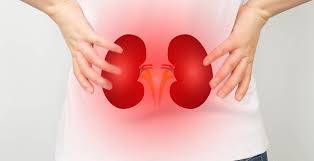In the intricate landscape of human health, there exists a silent but formidable adversary – kidney failure. Kidneys, the unsung heroes of our bodies, play a pivotal role in filtering waste and excess fluids from the blood, regulating electrolyte balance, and maintaining overall fluid balance. When these vital organs falter, the consequences can be severe, necessitating a deeper understanding of kidney failure and its management. In this article, we embark on a journey through the intricacies of kidney failure, shedding light on its causes, symptoms, and the pathways to effective treatment.
I. Unraveling the Enigma of Kidney Failure:
Kidney failure, also known as renal failure, occurs when the kidneys lose their ability to adequately filter waste products from the blood. This condition is classified into two main types: acute kidney injury (AKI) and chronic kidney disease (CKD).
a. Acute Kidney Injury (AKI): Often triggered by sudden, severe illnesses, infections, or injuries, AKI is a rapid decline in kidney function. Timely intervention can sometimes reverse the damage, making early detection crucial.
b. Chronic Kidney Disease (CKD): This form of kidney failure develops gradually over time, often due to underlying health conditions such as diabetes, hypertension, or genetic factors. CKD is a silent predator, with symptoms manifesting only in advanced stages.
II. Recognizing the Signs and Symptoms:
Kidney failure can be insidious, with symptoms only becoming apparent when the condition has progressed significantly. Recognizing the signs is paramount for early intervention. Common symptoms include:
a. Fatigue and Weakness: Reduced kidney function leads to anemia, resulting in persistent fatigue and weakness.
b. Swelling: Accumulation of fluid in the body, known as edema, often manifests as swelling in the legs, ankles, or face.
c. Changes in Urination: Kidney failure can cause changes in the frequency and color of urine, as well as difficulty in urination.
d. Shortness of Breath: Excess fluid in the body can lead to respiratory difficulties.
III. The Culprits Behind Kidney Failure:
Understanding the root causes of kidney failure is crucial for prevention and effective management. Common risk factors include:
a. Diabetes: Uncontrolled diabetes is a leading cause of CKD.
b. Hypertension: High blood pressure damages the blood vessels in the kidneys, impairing their function over time.
c. Age and Genetics: Advancing age and a family history of kidney disease increase the risk.
d. Autoimmune Diseases: Conditions like lupus and glomerulonephritis can cause kidney damage.
IV. Navigating the Treatment Landscape:
Treatment strategies for kidney failure are diverse and depend on the type and stage of the condition. Options include:
a. Medications: Prescription drugs can help manage symptoms and slow the progression of kidney disease.
b. Dialysis: In advanced stages, dialysis may be necessary to perform the kidney’s filtration function artificially.
c. Kidney Transplant: For eligible candidates, a transplant offers a chance at a renewed and healthier life.
V. Empowering through Prevention:
While some risk factors for kidney failure are beyond our control, adopting a healthy lifestyle can significantly mitigate the risk. Strategies include:
a. Managing Chronic Conditions: Controlling diabetes and hypertension is paramount.
b. Balanced Diet: A diet low in sodium and rich in fruits, vegetables, and lean proteins supports kidney health.
c. Hydration: Staying adequately hydrated ensures proper kidney function.
Conclusion:
Kidney failure is a formidable foe, but armed with knowledge and a commitment to a healthy lifestyle, individuals can navigate the challenges it presents. Regular health check-ups, early detection, and proactive management are key to preserving the invaluable role our kidneys play in maintaining overall well-being. By understanding the complexities of kidney failure, we empower ourselves to take charge of our health and journey towards a future free from the shackles of this silent threat.































